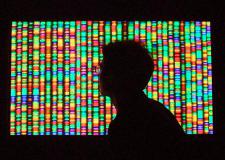Heritable human genome editing: making ‘societal dialogue’ meaningful
By Jackie Leach Scully,
Nuffield Council on Bioethics
| 10. 02. 2020
The Consensus Study Report of the International Commission on the Clinical Use of Human Germline Genome Editing, produced by an international commission convened by the US National Academies of Medicine and Sciences and the UK’s Royal Society, is careful to state that its focus is firmly on the scientific and technical sides of heritable human genome editing (HHGE) rather than the social and ethical. Although other commentators have properly pointed out the artificiality of that divide and the implausibility of a science untouched by social and ethical values, it is nevertheless a step in the right direction of acknowledging that HHGE’s ethical and social implications are of a scale that requires something more than a couple of chapters tucked in at the end of a report.
The Consensus Study Report still has much in common with earlier reports that gave more houseroom to ethical issues, including the National Academies’ earlier (and broader) Human genome editing: science, ethics, and governance (2017) and the Nuffield Council on Bioethics’ own two reports, Genome editing: an ethical review (2016) and Genome editing and...
Related Articles
By Katrina Northrop, The Washington Post | 04.06.2025
photo via Wikimedia Commons licensed under CC by 3.0
China's most infamous scientist is attempting a comeback. He Jiankui, who went to jail for three years after claiming he had created the world's first genetically altered babies, says he remains...
By Anumita Kaur [cites CGS’ Katie Hasson], The Washington Post | 03.25.2025
Genetic information company 23andMe has said that it is headed to bankruptcy court, raising questions for what happens to the DNA shared by millions of people with the company via saliva test kits.
Sunday’s announcement clears the way for a new...
By Peter Wehling, Tino Plümecke, and Isabelle Bartram
| 03.26.2025
This article was originally published as “Soziogenomik und polygene Scores” in issue 272 (February 2025) of the German-language journal Gen-ethischer Informationsdienst (GID); translated by the authors.
In mid-November 2024, the British organization Hope not Hate published its investigative research ‘Inside the Eugenics Revival’. In addition to documentating an active international “race research” network, the investigation also brought to light the existence of a US start-up that offers eugenic embryo selection. Heliospect Genomics aims to enable wealthy couples to...
By Frank Landymore, Futurism | 03.18.2025
You can only throw so much money at a problem.
This, more or less, is the line being taken by AI researchers in a recent survey. Asked whether "scaling up" current AI approaches could lead to achieving artificial general...




